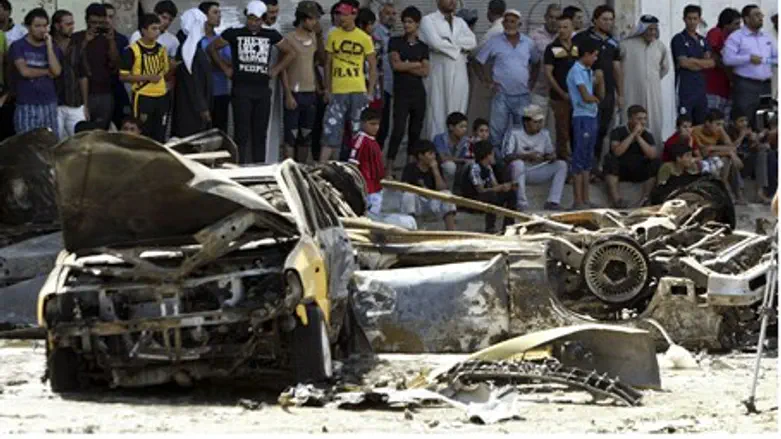
Eleven car bombs wrought havoc throughout Iraq on Thursday, leaving at least 31 dead and raising fears of an all-out sectarian war between Shi'ite and Sunni Muslims.
Iraq has suffered ongoing attacks, as just last week a truck bomb killed at least 48 at a fruit and vegetable market in Baghdad. Earlier this month attacks marred the Shi'ite pilgrimage holiday of Ashura and left 41 dead. Estimates put the number killed in Iraq this year at over 6,000.
The attacks Thursday hit wide ranging parts of the country and targeted markets, bus stations, a funeral tent, and a top police official's convoy, reports Al Jazeera. The official, Major General Juma al-Dulaimi, who is the police chief of Sunni-majority Salaheddin province, was unharmed by the blast that killed 3 civilians and wounded 2.
Salaheddin province was targetted in other attacks as well. A suicide car bombing killed 3 police in the province at a checkpoint. Furthermore rebels set up a fake checkpoint where they gunned down 6, including a senior official in Iraq's identity card department, his wife, 2 police and 2 civilians.
Thursday's attacks come just months before a general election. Prime Minister Nuri al-Maliki reportedly asked for greater intelligence sharing and new weapons systems during a recent trip to Washington, and France and Turkey have likewise offered aid.
Shia religious leader Muqtada al-Sadr, a powerful figure in Iraqi politics, warned "the Iraqi people will disintegrate, its government will disintegrate, and it will be easy for external powers to control the country," according to The Independent.
Sadr added "the near future is dark" for Iraq due to sectarian divides.
Many of the Shi'ite terrorist groups operating in Iraq are closely aligned with Shi'ite-majority Iran, and at least some of them have been taking part in the civil war in neighboring Syria by sending men to fight on the side of the Assad regime.
The founder and leader of one such group, the Al Mukhtar Army, said in an October 23 interview on Iraqi TV that were war to break out between Iran and Iraq, he would side with Iran against his own country. Watheq Al-Battat's statement highlight the Sunni-Shi'ite divide in Iraq.